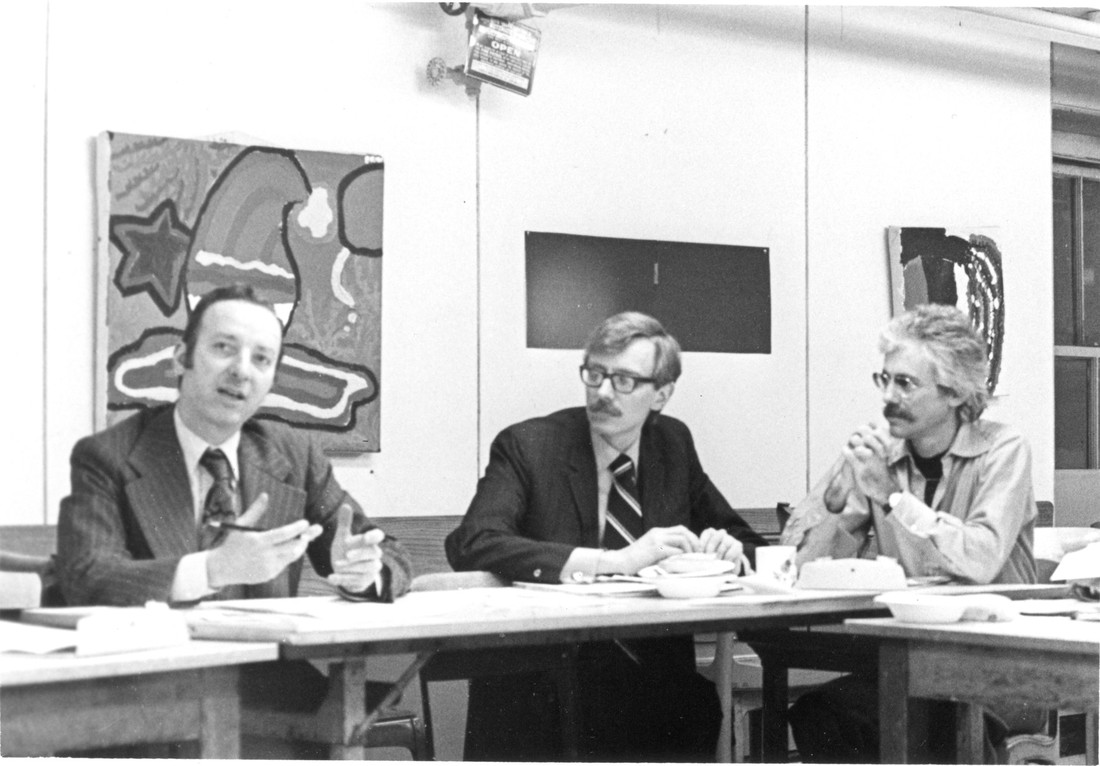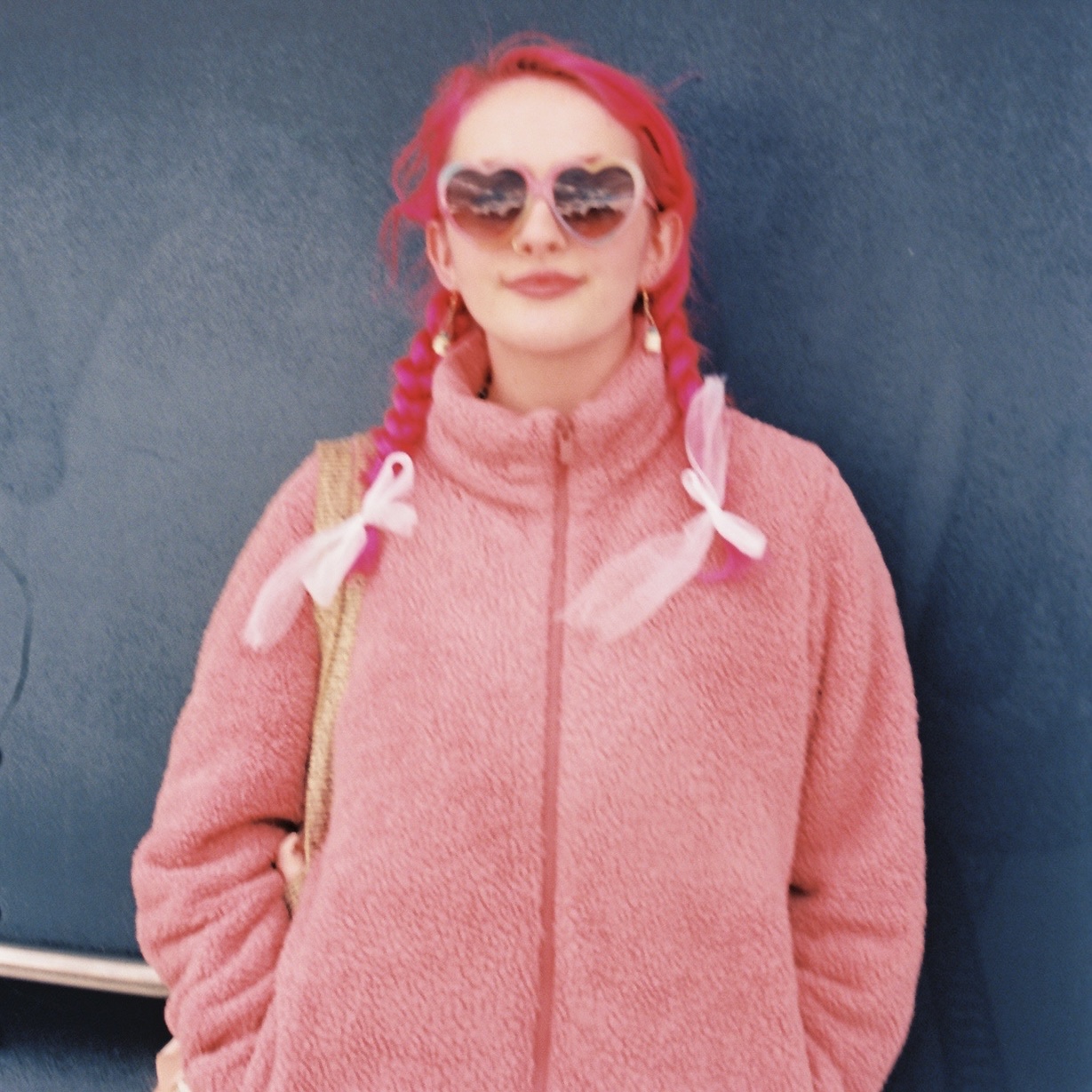
Dan Seeger(far left) speaks with AFSC staff. Photo: AFSC Archives
In the 1950s, Dan Seeger refused to register for the draft because of his moral beliefs. He was tried and convicted for draft refusal and sentenced to a year and a day in prison.
But Dan remained true to his beliefs, pursuing his case all the way to the Supreme Court. Eventually, his efforts would expand who qualifies for conscientious objector status in the United States—and help safeguard the First Amendment’s guarantee of religious liberty for generations to come.
“I realized I was bucking the Federal Government and I felt nervous,” he said, “but I knew that what I was doing was right. I felt it was something that had to be done rather than collaborate in the destruction of other people’s lives.”1
Dan was born in the Bronx in 1935. He was raised in a Roman Catholic family, but in adulthood came to a different set of beliefs. He was not a formal member of the Religious Society of Friends, but regularly attended meetings and spoke highly of Quakers, drawn in by the fact that Friends believe that God speaks to people as individuals and not through a hierarchy or clergy.2
In 1958, Dan applied for conscientious objector status. There were many requirements for the application, and ultimately his application was denied on the basis that his beliefs did not constitute "belief in a Supreme Being." Instead, Dan described his beliefs as “a belief in and devotion to goodness and virtue for their own sakes, and a religious faith in a purely ethical creed.”3
The FBI and a Justice Department hearing officer investigated Dan. All came to agree that he was sincere in his beliefs. Dan would have qualified as a conscientious objector had he said he believed in a Supreme Being. The Justice Department decided, however, to prosecute Dan because he failed to meet this one requirement.
AFSC supported Dan throughout this case. Funding for his legal defense was provided by the Central Committee for Conscientious Objectors in Philadelphia, a group that worked closely with AFSC. Dan was also supported by the ACLU and the American Ethical Union.
In 1965—seven years after Dan was denied conscientious objector status—he was vindicated. The U.S. Supreme Court ruled unanimously in Dan’s favor. With this ruling, the court expanded the religious qualifications for allowing pacifists exemption from military service. No longer must an individual hold belief in one specific “Supreme Being” to object to fighting in war.
Since this victory, Dan has remained committed to Quaker advocacy. He served in various roles at AFSC, including regional director of AFSC’s New York Metropolitan Regional Office, interim regional director in San Francisco, and as interim general secretary. He also served as executive director of Pendle Hill, the Quaker Center for Study and Contemplation in Wallingford, Pennsylvania. Dan writes frequently on subjects of interest to Friends, and his articles have been published in a range of Quaker publications.
Today, Dan’s Supreme Court case is featured in an exhibit on the First Amendment at the National Constitution Center in Philadelphia. It will run through the end of November.
Learn more about AFSC's worldwide work for peace and justice.
Sources:
[1] The New York Times, 1964
[2] The New York Times, 1964
[3] The Washington Post, 1965
